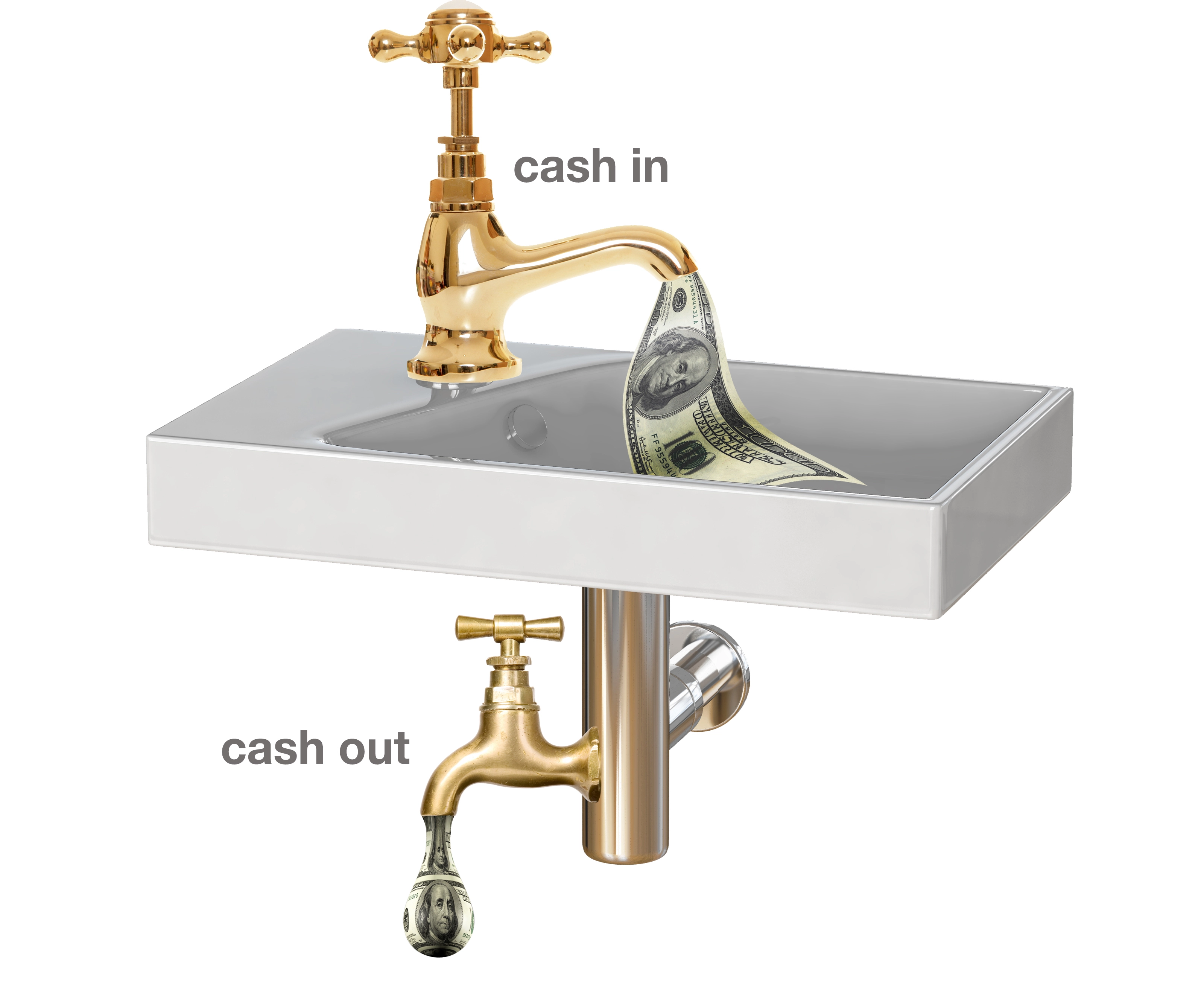Planning ahead will help you avoid traps and prosper.
You can’t begin to plan for spring too early. Start preparing for the busier months ahead while you still are experiencing the slow, late winter months. This slower period gives you enough time to think and plan so that all you have to do when you get busy is execute your plan. With planning you won’t make these four cash mistakes:
1. Buying Too Much Inventory
Suppliers often will give you spring stocking deals, which, on the surface, seem to be great deals. Inventory is a bet. You are betting your hard-earned cash that you will be able to sell ALL of that spring stocking order you placed. If you don’t, you are paying for parts that sit on your warehouse shelves.
What is a good spring stocking order? Look at what you used last year. Let’s assume that there is a great price when you buy 10 condenser fan motors and pay for them in 90 days. You review your records and find that last year your company sold only five condenser fan motors in that 90 day period. What is the likelihood that you will install 10 motors this year to take advantage of the great price? It’s probably not good unless you doubled your customer base or are planning to invest many marketing dollars to generate new customers.
However, if you review your files and find that you sold 20 motors in that 90 day period last year, buy 20. It’s a great price. You should generate enough revenue to pay the invoice and enjoy a higher margin on those sales!
2. Ignoring Past Proposals And Tickler Files
Last year’s service and potential job customers can be a source of quick cash in slower time periods. At the end of last year many of your customers probably said, “I’ll wait until next year to install that new system or replace that part.” All of these proposals and service tickets should have been placed in a tickler file. Review that file. Call those customers and schedule their service calls or job estimates.
In addition, call all customers whom you proposed work for last year that did not buy from you. Find out what happened. Some bought from your competition. Some did not buy from anyone. These potential customers may be ready to purchase their new equipment now. Some are getting tax refunds. Investing in a new hvacr system is a great way to use that refund. With your phone call you could prompt them to buy from your company.
3. Not Renewing Service Agreements
Service-agreement sales can be a quick cash generator. Remember that only 50% of the revenue and thus cash is earned when you do the spring inspection. The other 50% should be put in an interest-bearing account. However, that first 50% can help ease some of the cash pressures in slower times.
Get a list of all customers who haven’t renewed their service agreements for the past three years. Call all of them. Assume the sale. Since it is time for a spring maintenance inspection, tell the customer that the service technician will renew the agreement while he is at the customer’s home performing the inspection. Then make sure the dispatcher tells the technician to collect for the service agreement. For commercial customers, your salesperson who sold the agreement should be in regular communications with the customer and ensure that the agreement gets renewed.
From a residential perspective, you’ll probably discover that many of your customers didn’t renew in previous years because they didn’t see the need. If it has been a few years since an inspection, your customer will probably renew. If your customer declines to have the inspection, find out why. She should tell you why she didn’t renew the agreement. Answer her objections and show her the need to invest in a service agreement again.
Check the renewal rate for your service agreements. If it is under 90% you have a problem. You have to sell 10% more in 2008 than you did in 2007 just to stay even. Try to get your renewal rate to at least 90%. It might be something simple like the renewal notices didn’t go out or those who did not renew within a specific period of time were not contacted. Accomplishing these two activities might boost your renewal rate to over 90%.
If you don’t have a service agreement program, this spring is the time to start one. Service agreements build a strong customer base, help even out the revenue seasonality, and those customers keep you profitable in slower years.
4. Spring Inspections Generate Overtime
There is not enough profit margin in service agreements to perform inspections during overtime hours. Unless there is a very good reason, the inspections should be done during normal working hours. Even if your technician finds additional work that should be performed, that work should be done during normal working hours. For many contractors, technicians are slower right before scheduling spring inspections. They may not have received a 40-hour paycheck in a while. They are looking for a reason to have overtime hours to make up for those lost wages. Don’t fall into that trap! You need to protect your cash. Watch overtime hours in the early spring. Don’t accept them unless they are truly justified.
Avoiding these cash mistakes will help you build a strong financial base this spring.
Ruth King has over 25 years of experience in the hvacr industry and has worked with contractors, distributors, and manufacturers to help grow their companies and become more profitable. She is president of HVAC Channel TV and holds a Class II (unrestricted) contractors license in Georgia. Ruth has written two books: The Ugly Truth About Small Business and The Ugly Truth About Managing People. Contact Ruth at ruthking@hvacchannel.tv or 770.729.0258.





